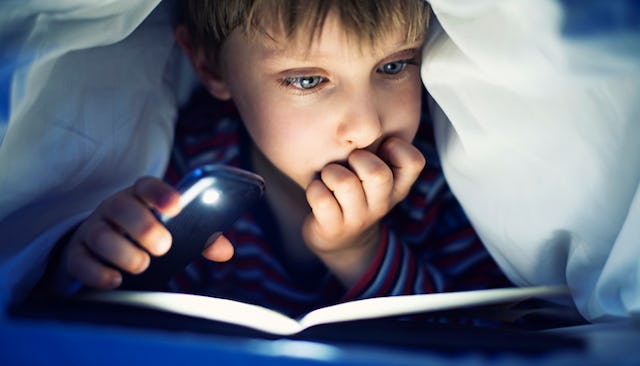Banning Books Solves Nothing, And We Need To Stop Now

At the end of 2016, To Kill a Mockingbird and The Adventures of Huckleberry Finn were suspended from the curriculum in some Virginia schools, after a parent complained about the use of racial slurs.
Not that this is a new development for either of these titles. Mark Twain’s The Adventures of Huckleberry Finn is No. 5 on the American Library Association’s list of the 100 most frequently challenged books from 1990 to 1999. No. 40 is To Kill a Mockingbird by Harper Lee.
Both have been banned for a number of reasons over the years, for everything from race, to adult situations, to language.
But ultimately, who is doing the banning?
Parents.
Not the government, teachers, administrators, religious organizations, or conservative Bible thumpers. I mean, not always. These groups do bring about some bans. In fact, one of the more frequently challenged materials in libraries is the Bible, along with all other religious texts.
But more often than not, it’s parents trying to make a good decision for the protection of their children, all of it functioning under the idea that if they protect their children from some element of real life presented by text, they will somehow be sparing their children anything from rebellion, to being offended, to being exposed, to controversial ideas they might not be ready for. And as a parent, I think there can be some truth to that.
I don’t necessarily want my children to be exposed to the more mature, nastier parts of the world until I feel they are emotionally ready. Some things, I honestly don’t want them to be exposed to, ever. I can’t control all aspects of their world though, and the bottom line is that all of our kids are going to be exposed to elements of the cruel world that we’d rather they were able to avoid forever. So, is sheltering our children from books really the best way to go about protecting them?
That really is the question being raised by those opposed to banning books.
Chelsea Condren’s article, “Why Do We Ban Books, Anyway?” says it best: “Banning books is about individuals who believe they have the right to decide how we think what we see, and especially about individuals who believe they are protecting our children by attempting to bar them from reading certain books. The power and danger in book banning lies in someone’s ability to think their opinion is the only one that matters, and, thereby, the only one that is allowed.”
Banning books raises questions of free speech. And there’s always the lingering reality of what little good it does to ban a book. Banning a book can increase intrigue in readers, teens especially, and make them more likely to seek it out. Which is the exact opposite of my teen experience with Huckleberry Finn, which was forced on me as a junior high student, and then I was asked to discuss the historical, racial, and moral ramifications of the text, dreading every moment of it, only to realize later in life, as an English major, how important it was for me to discuss those topics at a young age.
Ultimately, that’s the point of literature in general. It’s to give us the opportunity to discuss life outside our own experiences so that we can better understand the experiences of others, learn from the past, and gain empathy. Being able to independently decide the quality of someone else’s thoughts, and being able to use those skills to form intelligent and compassionate opinions, is a skill best learned by reading and discussing books. Critical thought is vastly important, and books are where teens can develop that ability in a safe setting.
Despite all this, for whatever reasons, we keep going through this vicious cycle of banning classic literature for various inane reasons without thinking about the social and historical lessons that can be gleaned from discussing a tale like To Kill A Mockingbird in a classroom with one’s peers. The fact is, we live in a great, big world with varying opinions and beliefs. And honestly, I’d prefer to prepare my children with a range of ideas and understanding now with the guidance of their parents and teachers, versus having everything smack them in the face when they enter the real world.
We can’t shield our children from racism or sexism. This isn’t to say that we shouldn’t try to some degree, but ultimately, I believe it’s more important for us to teach children how to understand these issues more comprehensively so that when they do go out into the real world, they do so with an understanding that people are different — the world is full of different religions and races and cultures — and are able to interact with that world in a thoughtful, respectful way. In fact, while we are on the subject, No. 48 on the list of most challenged books is the Harry Potter series, which seems in direct contrast with a recent study in The Journal of Applied Psychology, titled “The Greatest Magic of Harry Potter: Reducing Prejudice.”
By banning books, we are keeping children from gaining important soft skills that will, without a doubt, help them to make better decisions, and be more productive and more understanding as an adult. Also, we are restricting their right to form their own opinion. Let’s not do that, please.
This article was originally published on